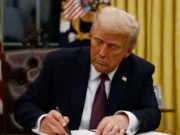Banking Consultant, Dr Richmond Atuahene, has offered an advice to the President-elect, John Dramani Mahama, to appoint people who understand the micro-economic issues to help him stabilize the country’s high inflation rate and the cedi depreciation amidst the post Covid-19 Economic Recovery Programme.
According to him, the mantle maybe high but it is not insurmountable for the new government to achieve some success. He emphasized if the incoming President allows the technical people and the fine brains to work, it would propel the government.
“I think he [Mahama] must be advised to pay particular attention and get people who understand the microeconomic issues to help him to ensure this inflation and currency comes down, that would be the biggest plus to him” he asserted.
Speaking in an interview on GhOne Television monitored by CUSTODIAN Online, Dr Atuahene said President John Mahama must also put in place a credible debt and arrears repayment plan as it used to be in 2010 so that in about three to four years’ time the government would’ve cleared all its debt and not create new ones.
“The next one is how are we refencing the debt? I am not talking about the external debt or the local debt, I am talking about the 35billion contractors debt and the energy debt. His Excellency must get a term as they used to have in 2010 – you have a credible arrears repayment plan so that by the time maybe in three, four years you would’ve cleared it and not created a new one” the Banking Consultant posited.
“If we do that, I don’t think the mantle is high but I don’t think it is insurmountable. I think with the brains and the technical people [if they would allow them to help him] they would be able to achieve this and put the country on track, it doesn’t even in four years” he emphasized.
Dr Richmond Atuahene has also charged the incoming government to adequately take steps to strengthen the banking and financial sector systems.
“So the first thing I want to advice, this is free advice for the incoming President, he must strengthen the remittances [even create a new unit at the Central Bank] like Bangladesh. Bangladesh gets 95 percent of remittances through banking system, we get just about 50 percent and the other 50 percent doesn’t go into the banking system.
“I’m going to give you the figures; last year 2023, the World Bank told us 4.7billion, we track only 2.8billion, 1.9billion gone. Previously, 4.2billion, we tracked 2.1billion and those things are gone but if we put systems very strong, we would be able to track it and once we would be to track the remittances very well it would help the management of the economy and it would help the cedi to stabilize” he argued.










































